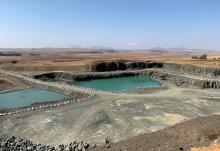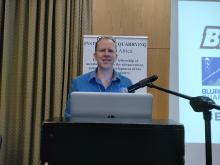That the coronavirus (COVID-19) crisis is a world-changing event is no overstatement. Business experts believe that dealing with the pandemic and its aftermath could be the defining obligation of our times. In fact, McKinsey & Company maintains that the pandemic augurs the “imminent restructuring of the global economic order”.
Commenting on how the pandemic has affected the quarrying industry in South Africa, Andries van Heerden, CEO of Afrimat, an open-pit mining company providing industrial minerals, commodities and construction materials, says the crisis came at a time when the industry was already suffering from reduced demand for construction materials, thus aggravating an already complex business environment.
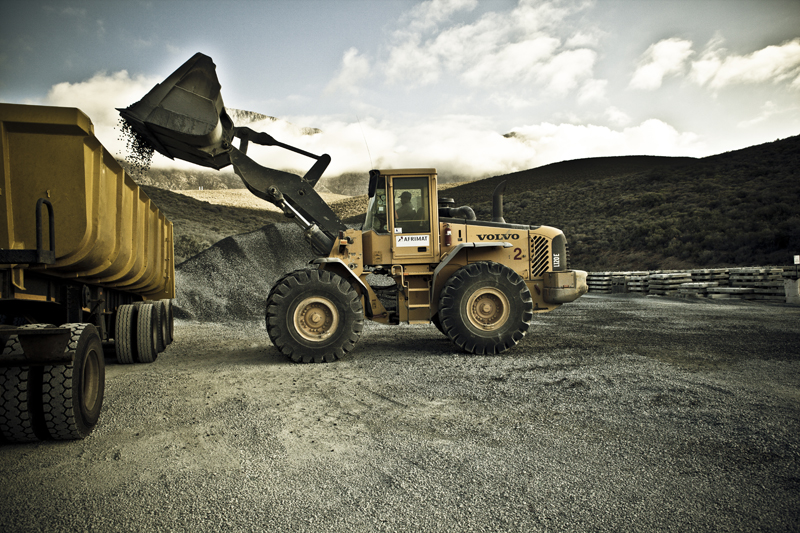
“The construction industry has been impacted by a shrinking market for the past three years, which left many quarrying businesses vulnerable when the lockdown was announced unexpectedly,” says Van Heerden. “Quarries had in most cases absolutely no revenue for the month of April and a severely reduced revenue stream for May. Sales started returning slowly during June as contractors returned to work and restarted production, although many operations are yet to reach pre-COVID-19 levels again.”
He adds that there has been talk of bank foreclosures, retrenchments and salary reductions among many industry players in South Africa, and it is therefore clear that the pandemic has had a devastating effect on the quarrying industry. “Afrimat, luckily, has been blessed with exposure to other industries and a strong balance sheet, which has shielded us from the worst possible impact.”
The same view is expressed by Marius van Deventer, independent auditor, ISHE Audits at southern Africa’s surface mining industry association, Aspasa, who says that the quarrying industry in South Africa has been operating under very difficult business conditions for some time now due to a constrained construction sector, with the COVID-19-influenced lockdown exacerbating the situation.
“This is something neither businesses nor individuals in the sector were prepared for,” says Van Deventer. “Companies lost a lot of revenue during the period they could not fully operate, while individual employees also lost out due to steps taken by employers to save businesses.”
The pandemic has forced quarry operators to re-think their business and do things differently. As we all know, says Van Heerden, the virus is highly contagious and looking ahead, the risk of human-to-human contact, direct or indirectly, should be reduced to the absolute minimum, while intense hygiene standards must be maintained.
“Fortunately, the quarrying and mining industry in South Africa has a strong compliance culture, and we need to build on this to maintain the discipline. The transport to and from work, the change houses and the ‘toolbox talks’ are areas where specific attention on social distancing and increased hygiene is of utmost importance,” says Van Heerden.
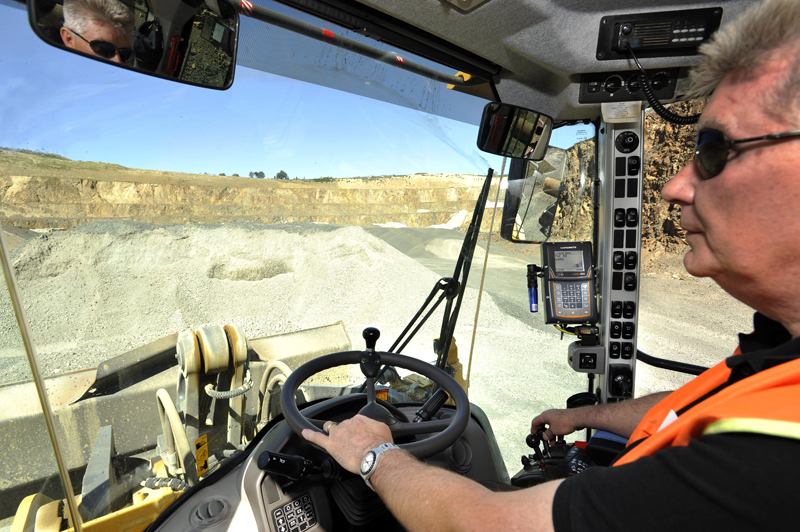
Van Deventer reasons that a quarry’s activities are basically drilling and blasting, loading and hauling, crushing and screening, maintenance and sales. Most of these, he says, can be safely done with limited human interactions, but in the entire process, the human factor will still be included. None of these activities will be possible without employees, and this is where the challenge lies.
He is, however, confident that the health and safety standards, and more specifically, the compliance levels, are very high in the South African quarrying industry. “Employees are committed to these through their different structures, and focus needs to be reinforced on the fact that existing risks still exist and need to be managed,” he says.
The same view is shared by Arjen de Bruin, MD at OIM Consulting, a Cape Town-headquartered business consultancy that specialises in the mining sector, who says stringent safety processes are entrenched in the industry’s very DNA. He believes that if a concern around safety arises, mines and quarries are geared to respond quickly – making the industry better equipped than most to handle the new complexities around COVID-19.
De Bruin is of the view that the more pressing concern mines and quarries face at the moment is the increased pressure to rapidly ramp up production in an effort to recoup output lost during the hard lockdown.
“In addition to this, they are now faced with an entirely new operating environment. Physical distancing, concerns within communities around COVID-19 infections and changes in day-to-day operations have altered existing team dynamics,” he says, adding that Capex (capital expenditure) projects may have to take a backseat as the urgency to rapidly meet new production targets moves to the fore. “We are back to basics, and the emphasis is fixed firmly on output.”
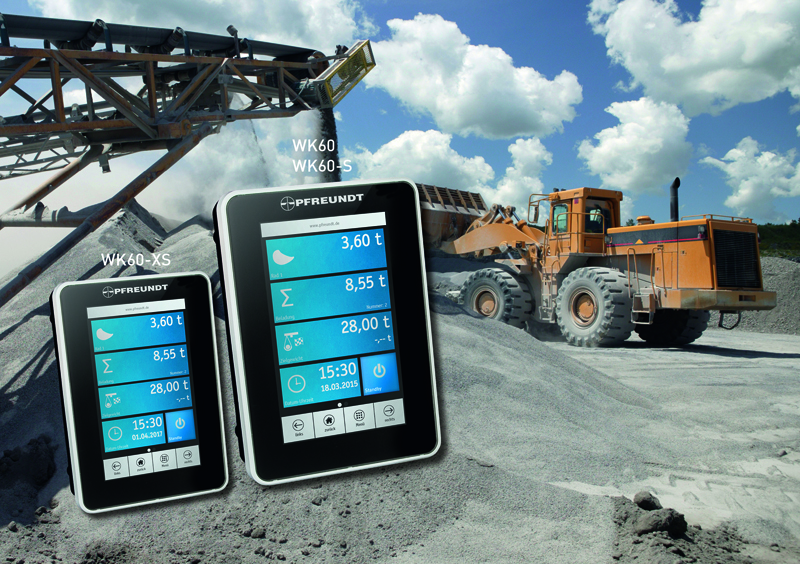
Like many, Van Heerden believes that in the ‘next normal’ technology will have an important role to play in improving the much-needed productivity and enabling high levels of health and safety.
“I think that technology is going to play a very important role in making the quarrying industry competitive in the ‘new normal’ after COVID-19. I think the focus will be on using technology to improve efficiencies and optimise the returns while making operations more adaptable to market demands which could be more volatile and demanding in future. As an industry in South Africa, we have been slow in embracing technology in our operations, and I think this is going to change,” says Van Heerden.
Glen Webster, sales manager at Loadtech Load Cells, the southern African distributor of LOADRITE, agrees, saying that where in the past quarry operators may have looked to the flexibility of their teams to drive productivity, going forward they now have a range of new workflows enabled by technology to help them cope with the ‘next normal’.
Now, says Webster, is a great time for quarry operators to learn more about the options available and talk with technology partners about their unique challenges, their goals and how technology can play a role in their productivity and health and safety programmes.
“Using third-party onboard scales on an aggregates business’s loaders, excavators, haul trucks and conveyors that collect productivity data that can be easily shared with teams for better decision-making can be beneficial,” says Webster. “Measurement tools like LOADRITE loader and belt scales, for example, give quarry managers real-time information about the amount of materials going into or taken out of the stockpile, and loader scales can also help ensure that every truck is loaded correctly.”

From a health and safety perspective, Webster says that even though many operators are already isolated in their cab, regular cleaning of surfaces notwithstanding, technology can help to isolate them further. Electronic ticketing technology, for example, can email the loading ticket to the truck driver’s mobile phone or the office, just as a paper ticket does. By replacing the physical handover of a loading ticket, it reduces the need for proximity or touching any objects that may have the virus.
New load/haul monitoring systems have also replaced haul truck tally sheets. In fact, some newer systems require no haul truck operator interaction to track cycles, with remote reporting for anyone off-site.
“Before COVID-19, it was standard practice to use a paper workflow with load tickets for truck drivers. With social distancing, this may no longer be acceptable. The answer is paperless, contactless Trimble eTickets,” says Webster.
An eTicket is a paperless email of a load ticket or load summary. The load ticket details one specific truckload. The load summary totals all the loads in the past 24 hours to midday. “Limit person-to-person interactions and paper handling with digital eTickets to replace paper tickets. An eTicket-enabled worksite helps support a safer environment for visiting truck drivers as there is one less reason to exit the truck cab and potentially put themselves in an unsafe area,” adds Webster.
Ivan van Heerden, managing director at Dynamic Weighing Systems, the sole distributor in southern Africa of the VEI Group’s line of onboard weighing and payload management systems, says that using intelligent products can help minimise contact between people. “If the VEI Vkiosk system is to be used, for example, there would be no need for a weighbridge and the related staff; the only persons on site would be the loader operators,” he says.

“The uptake of onboard weighing systems in the local quarrying market has been progressing. It is now more important than ever that contact between individuals is minimised as much as possible and this technology can play a huge role in that regard,” adds Ivan van Heerden.
Christiaan Luttig, marketing director at JBI Industrial Solutions, the sole distributor of Pfreundt’s range of load-weighing solutions in sub-Saharan Africa, believes that the COVID-19 pandemic has presented aggregate producers with valuable time to evaluate certain aspects of their business units. Reassessing key performance indicators (KPIs) and restructuring of tasks among personnel, he says, could have an overall positive outcome in the immediate future.
“The only way to make more money is reducing inefficiencies and waste within quarrying operations and implementing and utilising technology in the production process will be beneficial,” says Luttig.
“Utilising technology such as production and productivity monitoring equipment and software will easily outline areas of improvement. These software solutions will identify bottlenecks, cycle times, equipment utilisation and lost labour hours daily, among other important parameters. Performance of operators can also be monitored and quantified per hour/shift,” says Luttig. “We are heading into an era of autonomous plant control, already successful in other parts of the world. It is going to become a reality in Africa sooner than we expect.”
According to Van Deventer, new technology needs to be evaluated to replace fingerprint clocking stations for access control. New technology, he says, such as facial or retina scanning already exists and it’s time quarry businesses start rolling them out. “This technology can also be used for isolation of machinery with lockouts during maintenance work. Some of these technologies, unfortunately, come at a cost, and most operations are not currently in the right financial situation to implement these.”
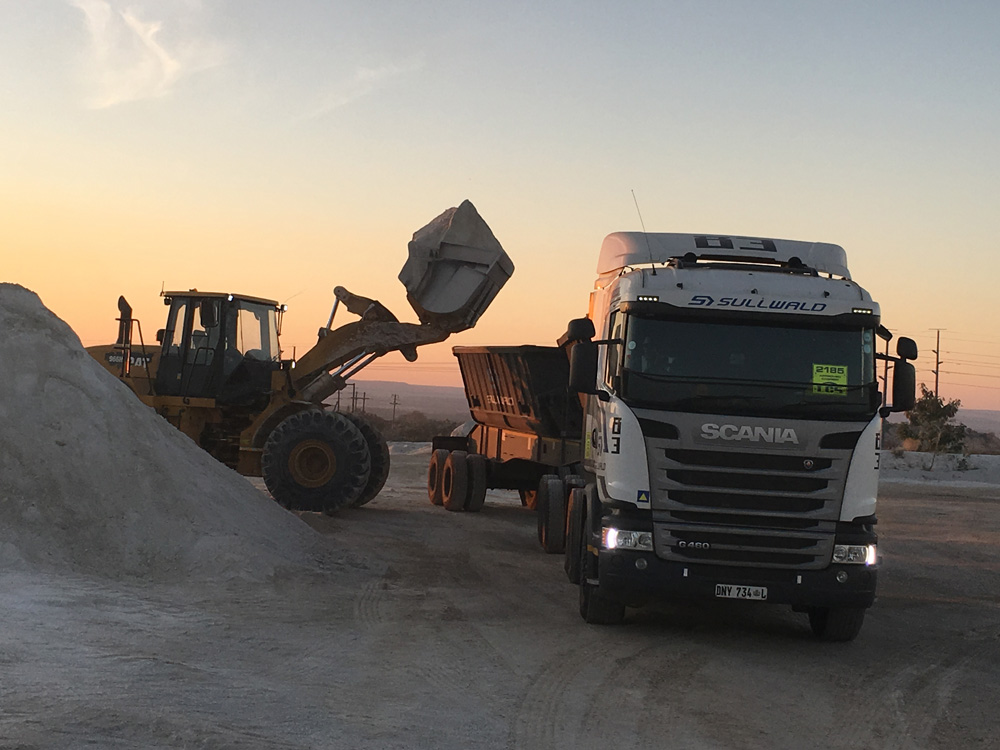
In conclusion, to quote Ian Davis, former managing partner at McKinsey and Co. in the midst of the global financial crisis in 2009: “For some organisations, near-term survival is the only agenda item. Others are peering through the fog of uncertainty, thinking about how to position themselves once the crisis has passed and things return to normal. The question is, ‘What will normal look like?’ While no one can say how long the crisis will last, what we find on the other side will not look like the normal of recent years.”
Van Deventer agrees, saying that it is impossible to know what will happen for the quarrying industry in particular. But, it is possible to consider the lessons of the past, both distant and recent, and on that basis, to think constructively about the future.
Apart from technology, looking ahead De Bruin sees the supervisor as being key to accelerating production within the ‘new normal’, and thus maintains that it is critical for senior leadership to understand what the frontline leaders are thinking, and how they are dealing with the new reality.
“With less on-site senior leadership representation, supervisors ultimately become the organisation’s primary culture carrier, responsible for motivating teams, instilling company values, ensuring adherence to new safety processes – and more importantly, meeting production targets,” concludes De Bruin.



